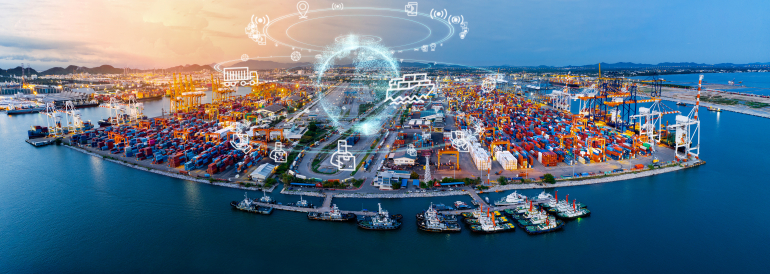
This panel explores the strategies adopted by the United States and its allies to deal with China amid ongoing geopolitical tensions. It will demystify the strategic reorientation from “de-coupling” to “de-risking” and document implications for the international economic legal order.
Speakers
James J. Nedumpara is Professor and Head of the Centre for International Trade and Investment Law (CTIL) at the Indian Institute of Foreign Trade (IIFT). In this capacity he advises the Government of India on various aspects relating to international trade and investment law. He is currently on leave from Jindal Global Law School where he joined as a founding faculty. James has several years of experience in the field of international trade and economic law and has worked with leading law firms, corporate firms and also UNCTAD's India programme before joining academia. He was also part of the Indian delegation that appeared in the recent proceedings on India- Agricultural Products (Avian Influenza dispute) before the WTO Appellate Body. James has also taught courses in international trade law as a visiting faculty at FGV Law School, São Paolo, Brazil, NLSIU, Bangalore and the CWS-WTI Joint Summer Academy. He has also served visiting fellowships in several law schools and has published several books and journal articles in the field of trade law.
Jaemin Lee is currently Professor of Law at School of Law, Seoul National University in Seoul, Korea. He obtained his LL.B., LL.M. and Ph.D. from Seoul National University; LL.M. from Georgetown University Law Center; and J.D. from Boston College Law School. His major areas of teaching and research are public international law, international economic law and international dispute settlement. He has published articles and books (including book chapters) on various topics of public international law, international trade law, international investment law, and trade policy. Upon graduation from College of Law, Seoul National University in 1992, he joined the Korean Ministry of Foreign Affairs as a foreign service officer. Between 2000 and 2004, he also practiced law with Willkie Farr & Gallagher LLP (Washington, D.C. office) as an associate attorney of the firm’s international trade group. From 2004 to 2013 he taught international law and international economic law at School of Law, Hanyang University in Seoul, Korea. He served as President of the Korean Society of International Economic Law (2020-2021), and Vice President of the Korean Society of International Law (2021). He also served as the Director of the Asia Pacific Law Institute of Seoul National University (2021-2023).
Yuka Fukunaga is Professor at Waseda University. She is Co-Secretary of the Society of International Economic Law (SIEL), Executive Council Member of the Japan Chapter of the Asian Society of International Law (AsianSIL), Board Member of the Japan Association of International Economic Law, and Book Review Editor of the Journal of International Economic Law (JIEL). She is also a Member of the International Centre for Settlement of Investment Disputes (ICSID) Panel of Arbitrators, member of the Japan Association of Arbitrators (JAA), and Co-Chair of the Japan Chapter of the Energy Related Arbitration Practitioners (ENERAP).
Dr. Jingxia Shi is a professor (international business & economic law) at School of Law, Renmin University of China (RUC). Previously she was a professor and the former Dean (04/2014-09/2019) at School of Law, China University of International Business & Economics (UIBE). She has been retaining extensive research interests in the areas of international investment and trade law, as well as cross-border insolvency, with abundant publications both in English and Chinese. Professor Shi earned her B.A & LL.B in 1992, Ph.D in International Law (1998) from Wuhan University, China. She also holds LL.M degree (2007) and J.S.D degree (2011) from Yale Law School.
Chair
Henry Gao is Professor of Law at Singapore Management University and Senior Fellow at CIGI. With law degrees from three continents, he started his career as the first Chinese lawyer at the WTO Secretariat. He has been an advisor on trade issues for many national governments as well as the WTO, UN, World Bank, ADB, APEC, ASEAN and the World Economic Forum. Widely published on China and WTO and digital trade issues, he sits on the Advisory Board of the WTO Chairs Program, as well as the editorial boards of the Journal of International Economic Law and Journal of Financial Regulation. His new book (with Weihuan Zhou) “Between Market Economy and State Capitalism: China’s State-Owned Enterprises and the World Trading System” was published by Cambridge University Press in November 2022.
About CIBEL Global Conference Network 2023
Reshaping the Global Economic Governance: Opportunities and Challenges for the Asia-Pacific Region
Global economic governance typically refers to the institutional, policy and regulatory framework established by governments to facilitate and manage their interaction and engagement in global economic activities. As the world emerges from the COVID-19 pandemic, there is a pressing need for governments to closely examine not only their own economic systems but also the global economic governance in light of the many new contexts. Numerous challenges lie ahead, including: the further rise of economic nationalism and protectionism, the persistent geopolitical confrontation between the world’s superpowers, the ever-greater fragmentation of the international legal order, the lack of progress in reforming key international institutions particularly the World Trade Organization (WTO), and difficulties and uncertainties in the pursuit of the shared goals of sustainability, inclusiveness and digitalisation. To address these challenges, international cooperation and communication is critical, with much of the collective effort increasingly focused on the Asia-Pacific region. Some recent and telling examples include the conclusion of the Regional Comprehensive Economic Partnership Agreement (RCEP), the US-led negotiations of the Indo-Pacific Economic Framework (IPEF), pioneering plurilateral and bilateral arrangements in the region such as the Digital Economy Partnership Agreement between New Zealand, Chile and Singapore and the Digital and Green Economy Agreements between Australia and Singapore, and the potential expansion of the Comprehensive and Progressive Agreement for Trans-Pacific Partnership (CPTPP) in the region and beyond. Understanding these and other significant developments, exploring potential opportunities and challenges, and strategically and actively engaging with the Asia-Pacific region, are thus of critical importance for reshaping global economic governance for the benefit of all stakeholders.
The 2023 CIBEL Global Network Conference & Young Scholars Workshop seek to promote academic and policy debate over the major opportunities for and challenges faced by governments in reshaping their own economic systems, as well as that of the global economic governance collectively, focusing on the role and impact of the Asia-Pacific.
